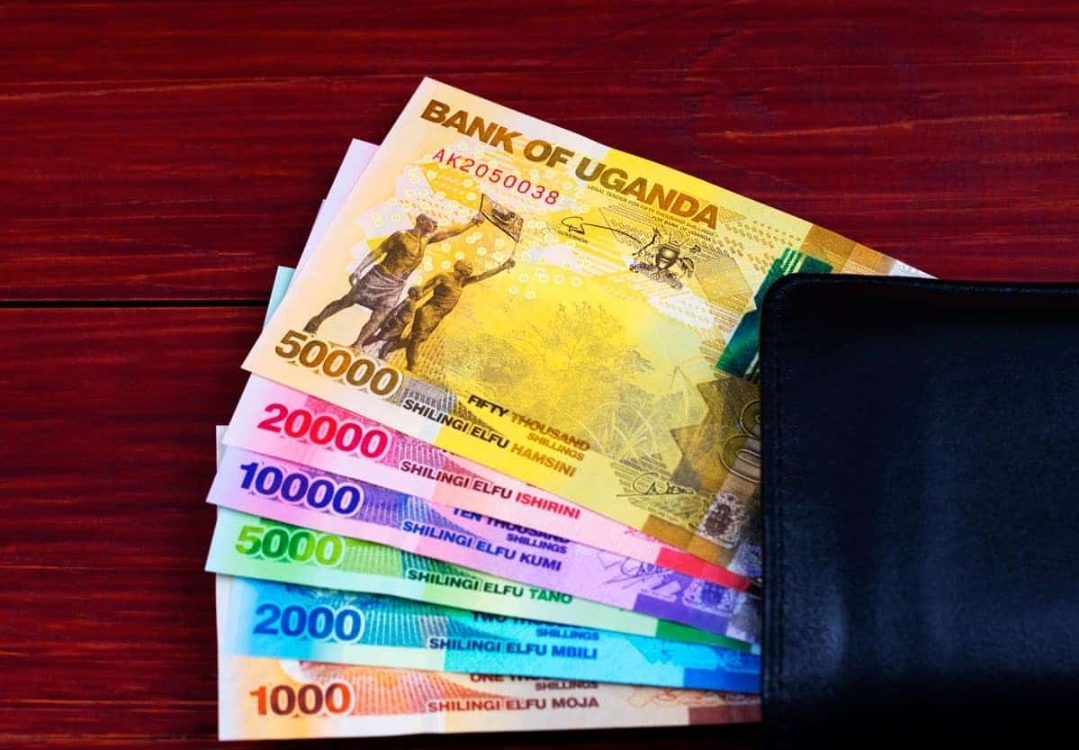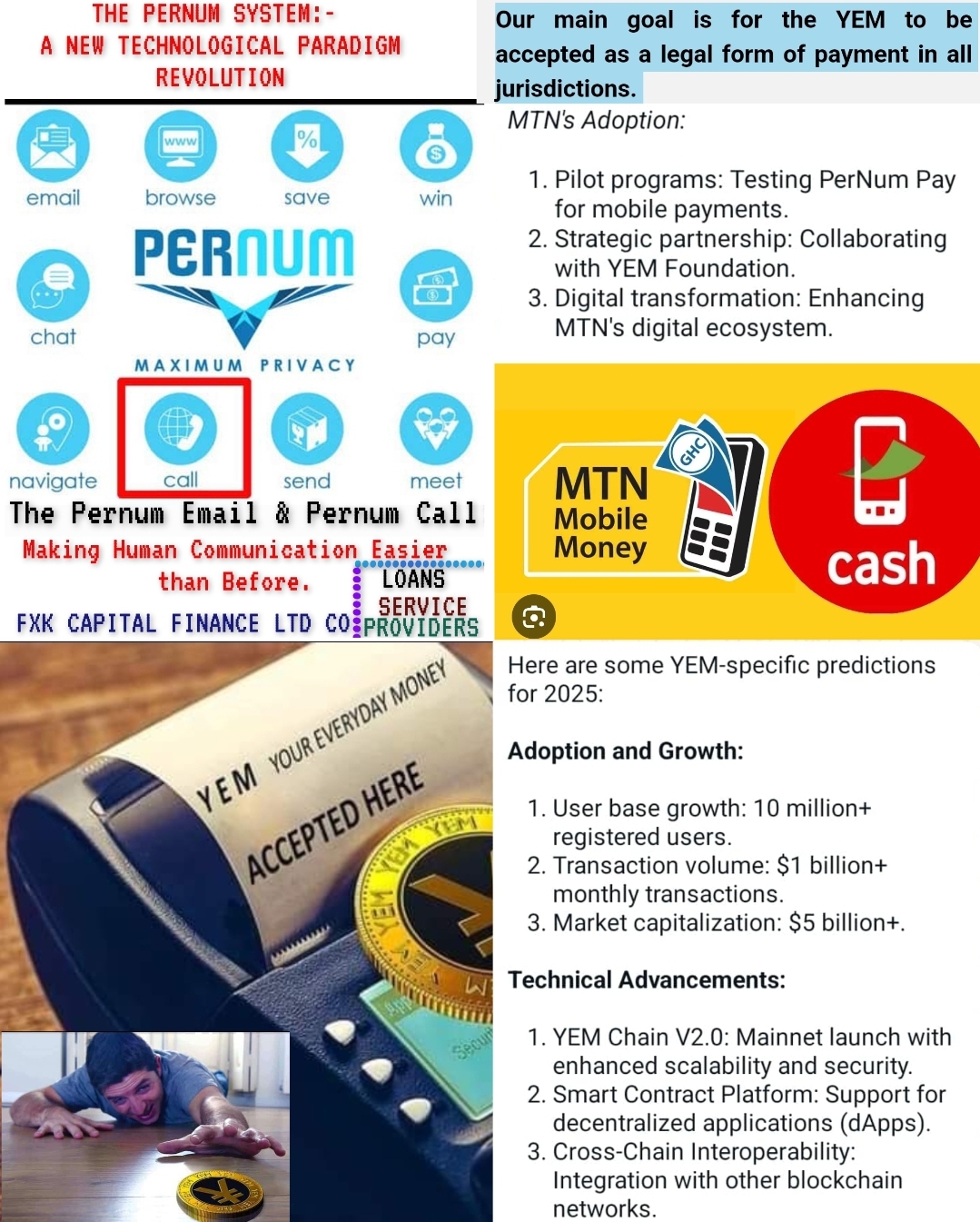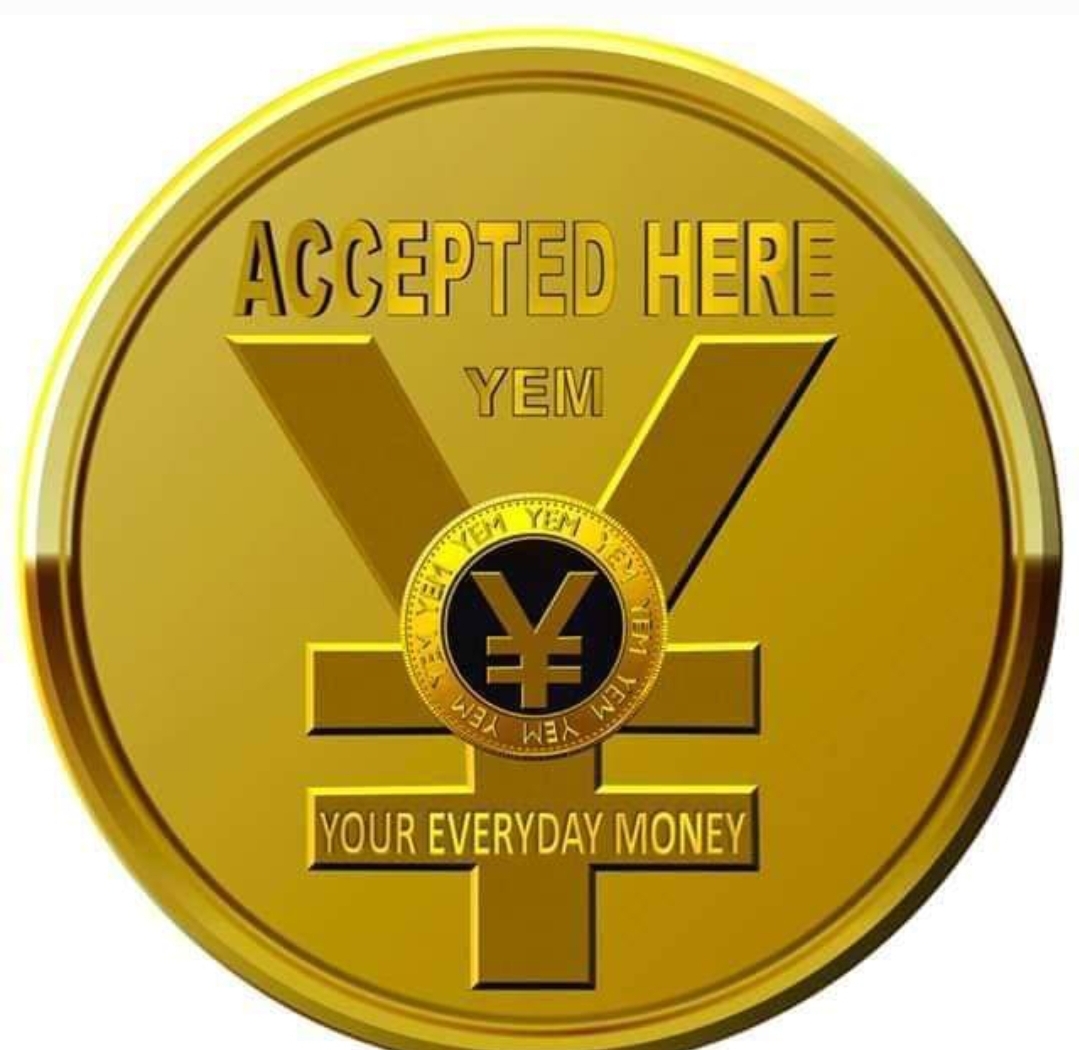
YEM - YOUR EVERYDAY MONEY
YEM is ‘Your Everyday Money’, a digital currency designed to be exactly that - a digital currency, functioning as an accredited form of payment substituting fiat money.
Additionally, YEM is used as a store of value, and can be used as collateral and/or liability capital in business transactions. From smallest businesses to publicly traded corporations, YEM is functioning as a capital reserve and as a vital part of their liquidity and financial planning.
YEM Chain is proud to be the first net-zero carbon blockchain. Thanks to our streamlined processing protocol (SPP), there is no energy wasted and on top, all servers are running on renewable energies. As a result, all transactions are executed in less than a second, and the maximum chain fee to be paid for a transaction is 0.1% of the transaction value.
Current Value of 1YEM = 25,000 CHF

We guide you how to open up a free pernum account untill it is fully verified and assist you how to use other platforms associated wity YEM Currency like the Digital Exchange
Center where you place your buy and sell order of YEM Currency.

Money goes mobile
The use of credit cards has dramatically increased in recent years. VISA and MasterCard have a share of more than 80% of the global credit card market, and this situation can be viewed as a regular oligopoly (feel free to disagree). However, a new and more comprehensive system is rapidly developing: mobile payment solutions. New technologies are providing new ways to make payments and transfer money via mobile phones, apps, Bluetooth solutions, and so on.
We do not yet fully understand the consequences of a society without money. Even today security is merely a footnote in the recommendations of the European Central Bank. Payment networks, such as SWIFT, PayPal, and Western Union, among others, can close people’s accounts in no time if there is a political disagreement with a Russian, Iranian, or just a politically active account holder. You may call it national security; however, you may also call it financial terror.
What will happen when we will experience massive IT breakdowns that are expected to occur in the future? Future wars will not be fought by troops on land but rather by people sitting behind computer screens. Earlier, banks have not shown the capability of taking timely precautions, and IT companies still lack the evidence to prove that they respect privacy and are capable of protecting sensitive data. Thus, we are facing a completely new and challenging ethical and security-related problem with e-money and virtual payment methods.
The young generations have quickly adopted to the new payment methods, and many of them do not know the feeling of holding a real banknote in their hands. In a way, money is becoming “imaginary,” forming a basis for disloyalty, in particular, among Generation Z (15 to 25 years). Based on estimations, the global “mobile pay” market will surpass $500 billion in 2016. In other words, it is a huge market. This market is still based on money, but money spent by using mobile phones. Because people are not holding the money in their hands, loyalty is likely to decline.
also transparent.
Young people demand transparency
In Denmark, money is handled by the National Bank and the central banking system. The central banks decide who can borrow money and how much interest they have to pay, and through speculation and manipulation of money quantities and interest rates, they control economic upturns (and downturns). This system does not offer sufficient transparency to satisfy what the young people are looking for.
The system in these new social monetary societies works as follows: participants will be contacted by the society if they save too much and thereby block the flow of the currency. The participants then agree to keep the money flowing so that they can work for the society instead of the money ending up passively in their pocket.
These types of currencies exist all over the world. In Kenya, for instance, microentrepreneurs created a new currency called Banglapesa. These new currencies start out as a kind of money used by people in a group who share commonalities and mutual trust and are not limited by their country’s economic politics and mismanagement. These types of currencies have a significant positive influence in developing countries in particular.
The indication is that traditional banknotes, currencies and transactions will one day disappear. It is merely a matter of time, because it is not supported by the younger generations. Currencies and physical money will die out together with their current fan base.
